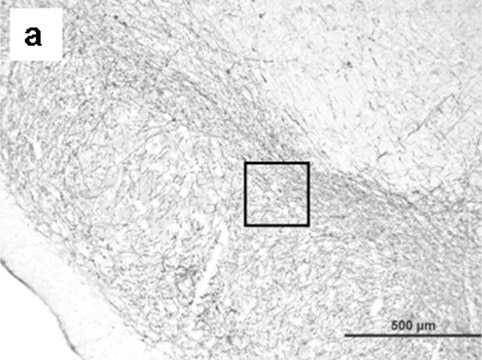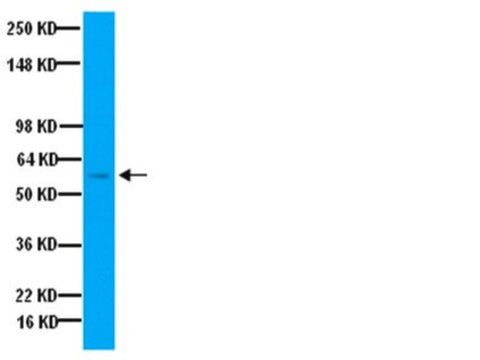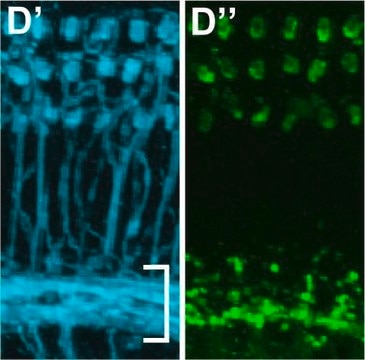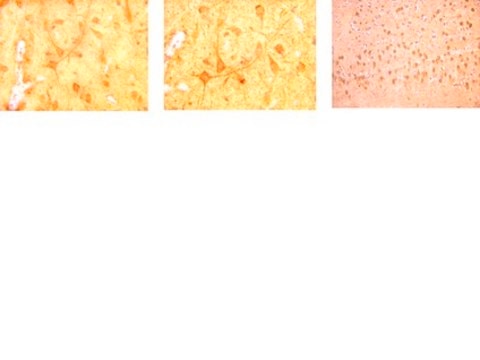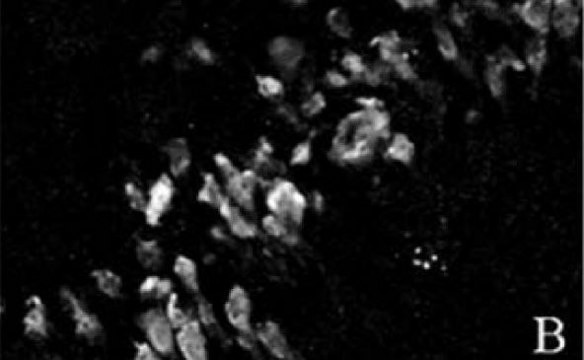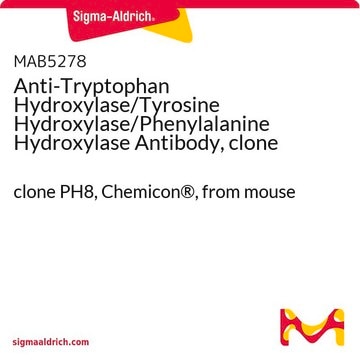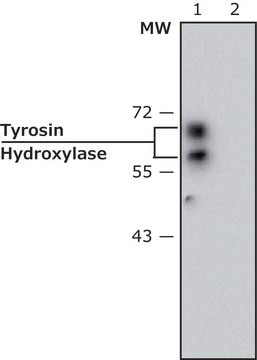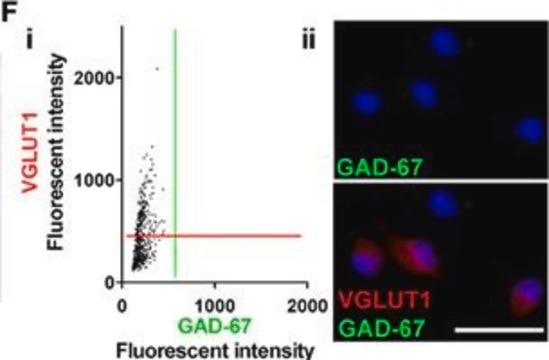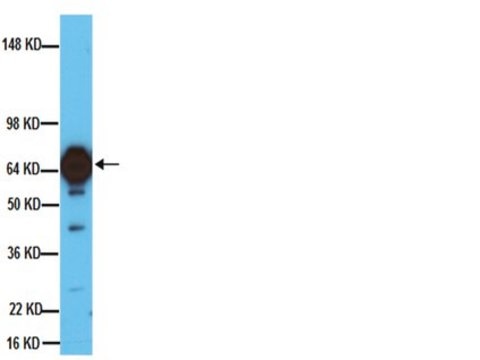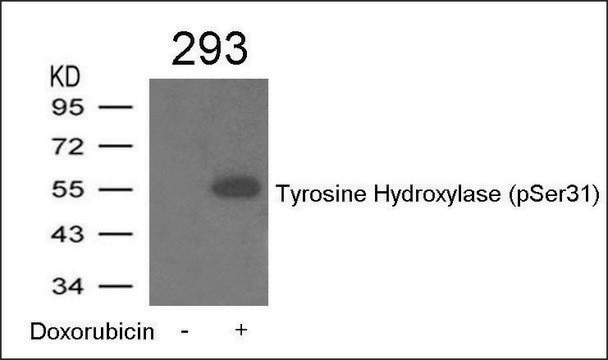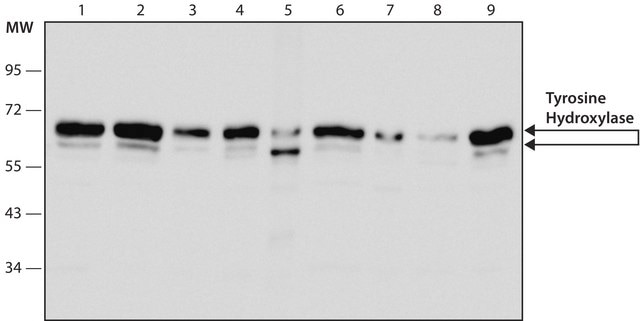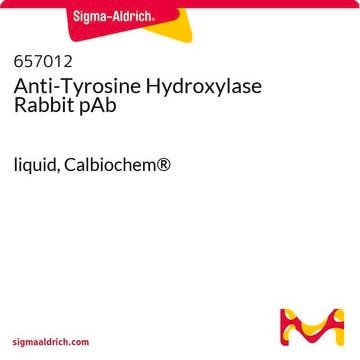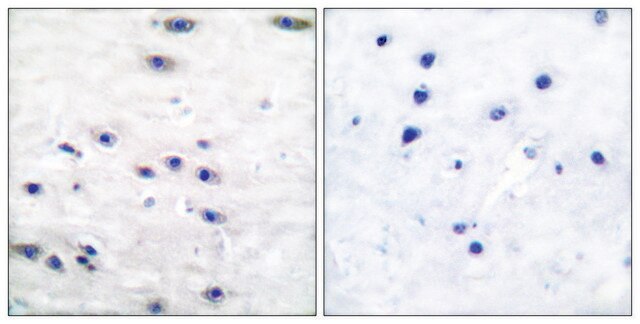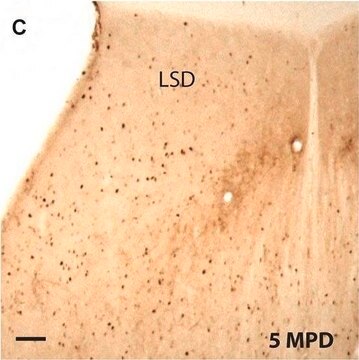AB9702
Anti-Tyrosine Hydroxylase Antibody
Chemicon®, from chicken
Synonym(s):
TH
About This Item
Recommended Products
biological source
chicken
Quality Level
antibody form
affinity purified immunoglobulin
antibody product type
primary antibodies
clone
polyclonal
purified by
affinity chromatography
species reactivity
human, mouse
manufacturer/tradename
Chemicon®
technique(s)
immunocytochemistry: suitable
immunohistochemistry: suitable
western blot: suitable
isotype
IgY
NCBI accession no.
UniProt accession no.
shipped in
wet ice
target post-translational modification
unmodified
Gene Information
human ... TH(7054)
Related Categories
Specificity
Immunogen
Application
Immunocytochemistry: 1:1000-1:2000 using 2% paraformaldehyde fixed cells.
Western Blotting: 1:2000-1:5000
Optimal working dilutions must be determined by the end user.
Neuroscience
Neurotransmitters & Receptors
Neuronal & Glial Markers
Physical form
Storage and Stability
Legal Information
Disclaimer
Not finding the right product?
Try our Product Selector Tool.
recommended
wgk_germany
WGK 2
flash_point_f
Not applicable
flash_point_c
Not applicable
Certificates of Analysis (COA)
Search for Certificates of Analysis (COA) by entering the products Lot/Batch Number. Lot and Batch Numbers can be found on a product’s label following the words ‘Lot’ or ‘Batch’.
Already Own This Product?
Find documentation for the products that you have recently purchased in the Document Library.
Customers Also Viewed
Our team of scientists has experience in all areas of research including Life Science, Material Science, Chemical Synthesis, Chromatography, Analytical and many others.
Contact Technical Service